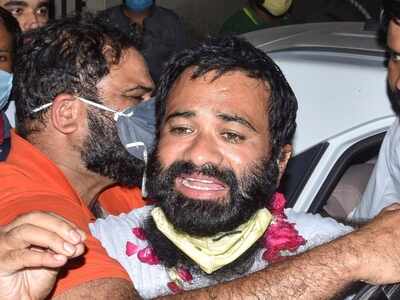
AGRA: It was a bittersweet homecoming for Dr Kafeel Khan on Wednesday. Moments after walking out of Mathura jail, over 12 hours after the Allahabad high court had ordered his release, he said he had begun to worry during his seven-month-long incarceration that he would not make it. So instead of going home to Gorakhpur, he told TOI at 2am, he was crossing UP’s border.
“What a relief,” he said. “I have only the judiciary to thank for this. I could have been eliminated.”
The paediatrician has been in the crosshairs of the state government since the death of more than 60 children at BRD Hospital in Gorakhpur, where he worked, because of oxygen shortage in 2017. “I am being victimised because I questioned the government about the real culprits of the children’s deaths,” he said. He remains suspended from his medical duties though the case of negligence against him was not proven.
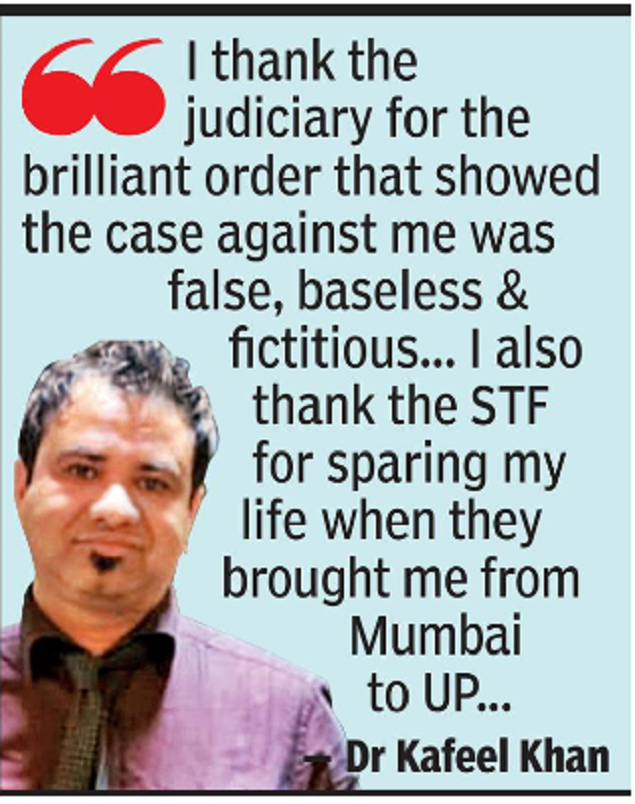
On Tuesday, the Allahabad High Court set aside his detention under the stringent National Security Act (NSA). He had been arrested on January 29 for a speech he delivered at Aligarh Muslim University gate during protests against the Citizenship (Amendment) Act.
Thanking the judiciary for the “brilliant” order that showed the state government’s case against him was “false, baseless and fictitious”, he said, “I also thank the STF (Special Task Force) for sparing my life when they brought me from Mumbai to UP after arrest.” When he had been arrested, he said the STF had interrogated him for 48 hours with “absurd” questions. “I was accused of trying to topple the state government and that I had some kind of powder to kill people, had visited Japan, and so on.”
In the course of conversation, he crossed the state borders safely. “I am taking my family with me and will spend some time with them,” he said. “I missed them a lot. My son, Oliver, was 11 months when I was jailed. Now, he has started saying ‘papa’.” His wife Shabista and brother Adeel, who had been trying to get him out all this while, met him at a predetermined spot.
When he was sent to prison, he continued that he was not given food or water for five days. “I was not allowed to talk about the Gorakhpur hospital case in prison.” Prison conditions were also “pathetic”, he said. “One toilet. Some 1,600 prisoners. And a capacity of 530. It was horrible.” He had started writing a book on the Gorakhpur tragedy while in prison. He said he will now try and finish it.
It has been a long time since he practised medicine, but he wants to help. “I want to do something for people in flood-affected states by organising medical camps. Floods increase risk of communicable diseases like cholera, malaria and dengue. Maybe some research on Covid-19. I had worked intensively on encephalitis earlier.”
But he is not headed to his hometown anytime soon. “I’ll be staying away from UP for a while.”
“What a relief,” he said. “I have only the judiciary to thank for this. I could have been eliminated.”
The paediatrician has been in the crosshairs of the state government since the death of more than 60 children at BRD Hospital in Gorakhpur, where he worked, because of oxygen shortage in 2017. “I am being victimised because I questioned the government about the real culprits of the children’s deaths,” he said. He remains suspended from his medical duties though the case of negligence against him was not proven.

On Tuesday, the Allahabad High Court set aside his detention under the stringent National Security Act (NSA). He had been arrested on January 29 for a speech he delivered at Aligarh Muslim University gate during protests against the Citizenship (Amendment) Act.
Thanking the judiciary for the “brilliant” order that showed the state government’s case against him was “false, baseless and fictitious”, he said, “I also thank the STF (Special Task Force) for sparing my life when they brought me from Mumbai to UP after arrest.” When he had been arrested, he said the STF had interrogated him for 48 hours with “absurd” questions. “I was accused of trying to topple the state government and that I had some kind of powder to kill people, had visited Japan, and so on.”
In the course of conversation, he crossed the state borders safely. “I am taking my family with me and will spend some time with them,” he said. “I missed them a lot. My son, Oliver, was 11 months when I was jailed. Now, he has started saying ‘papa’.” His wife Shabista and brother Adeel, who had been trying to get him out all this while, met him at a predetermined spot.
When he was sent to prison, he continued that he was not given food or water for five days. “I was not allowed to talk about the Gorakhpur hospital case in prison.” Prison conditions were also “pathetic”, he said. “One toilet. Some 1,600 prisoners. And a capacity of 530. It was horrible.” He had started writing a book on the Gorakhpur tragedy while in prison. He said he will now try and finish it.
It has been a long time since he practised medicine, but he wants to help. “I want to do something for people in flood-affected states by organising medical camps. Floods increase risk of communicable diseases like cholera, malaria and dengue. Maybe some research on Covid-19. I had worked intensively on encephalitis earlier.”
But he is not headed to his hometown anytime soon. “I’ll be staying away from UP for a while.”
Download
The Times of India News App for Latest India News

Coronavirus outbreak
Trending Topics
LATEST VIDEOS
India
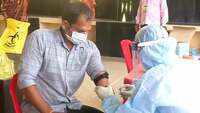 Covid-19: Active cases cross 2-lakh mark in Maharashtra, Pune worst-hit
Covid-19: Active cases cross 2-lakh mark in Maharashtra, Pune worst-hit 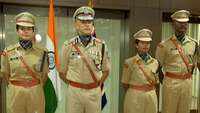 Kiran Shruthi from Tamil Nadu declared best IPS probationer
Kiran Shruthi from Tamil Nadu declared best IPS probationer  King cobra spotted at high-altitude in Uttarakhand’s Mukteshwar
King cobra spotted at high-altitude in Uttarakhand’s Mukteshwar 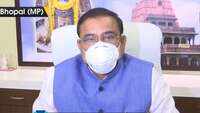 ‘He was mentally-ill’, says MP minister on Sehore farmer suicide case
‘He was mentally-ill’, says MP minister on Sehore farmer suicide case 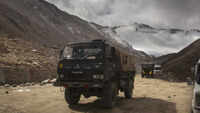 LAC row: India bolsters presence at strategic heights of Pangong lake area; military talks inconclusive
LAC row: India bolsters presence at strategic heights of Pangong lake area; military talks inconclusive  Gulf states openly move closer to India, Pakistan's house of cards in trouble
Gulf states openly move closer to India, Pakistan's house of cards in trouble
More from TOI
Navbharat Times
Featured Today in Travel
Quick Links
Coronavirus in MumbaiCoronavirus in KolkataCoronavirus in HyderabadCoronavirus in DelhiCoronavirus in BangaloreCoronavirus symptomsCoronavirus in IndiaWhat is CoronavirusCoronavirus NewsSolar EclipseNPRWhat is NRCCAB BillCAB and NRCRTI BillPodcast newsLok SabhaShiv SenaYSRCPCongressBJP newsUIDAIIndian ArmyISRO newsSupreme Court
Get the app



